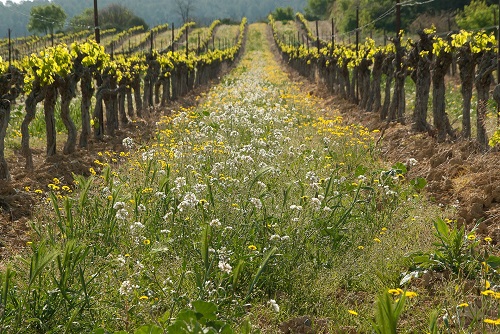
Crops worldwide are simultaneously affected by weeds, which reduce yield, and by climate change, which can negatively or positively affect both crop and weed species. While the individual effects of environmental change and of weeds on crop yield have been assessed, the combined effects have not been broadly characterized.
To explore the simultaneous impacts of weeds with changes in climate-related environmental conditions on future food production, an international research team, led by Monsterrat Vilà from the Doñana Biological Station, conducted a meta-analysis of 171 observations measuring the individual and combined effects of weeds and elevated CO2, drought or warming on 23 crop species.
The combined effect of weeds and environmental change tended to be additive. On average, weeds reduced crop yield by 28%, a value that was not significantly different from the simultaneous effect of weeds and environmental change (27%), due to increased variability when acting together. The negative effect of weeds on crop yield was mitigated by elevated CO2 and warming, but added to the negative effect of drought.
The impact of weeds with environmental change was also dependent on the photosynthetic pathway of the weed/crop pair and on crop identity. Native and non-native weeds had similarly negative effects on yield, with or without environmental change. Weed impact with environmental change was also independent of whether the crop was infested with a single or multiple weed species.
Since weed impacts remain negative under environmental change, our results highlight the need to evaluate the efficacy of different weed management practices under climate change. Understanding that the effects of environmental change and weeds are, on average, additive brings science closer to developing useful forecasts of future crop performance.
Reference
Montserrat Vilà et al. Understanding the combined impacts of weeds and climate change on crops. Environmental Research Letters https://doi.org/10.1088/1748-9326/abe14b
https://doi.org/10.1088/1748-9326/abe14b 


